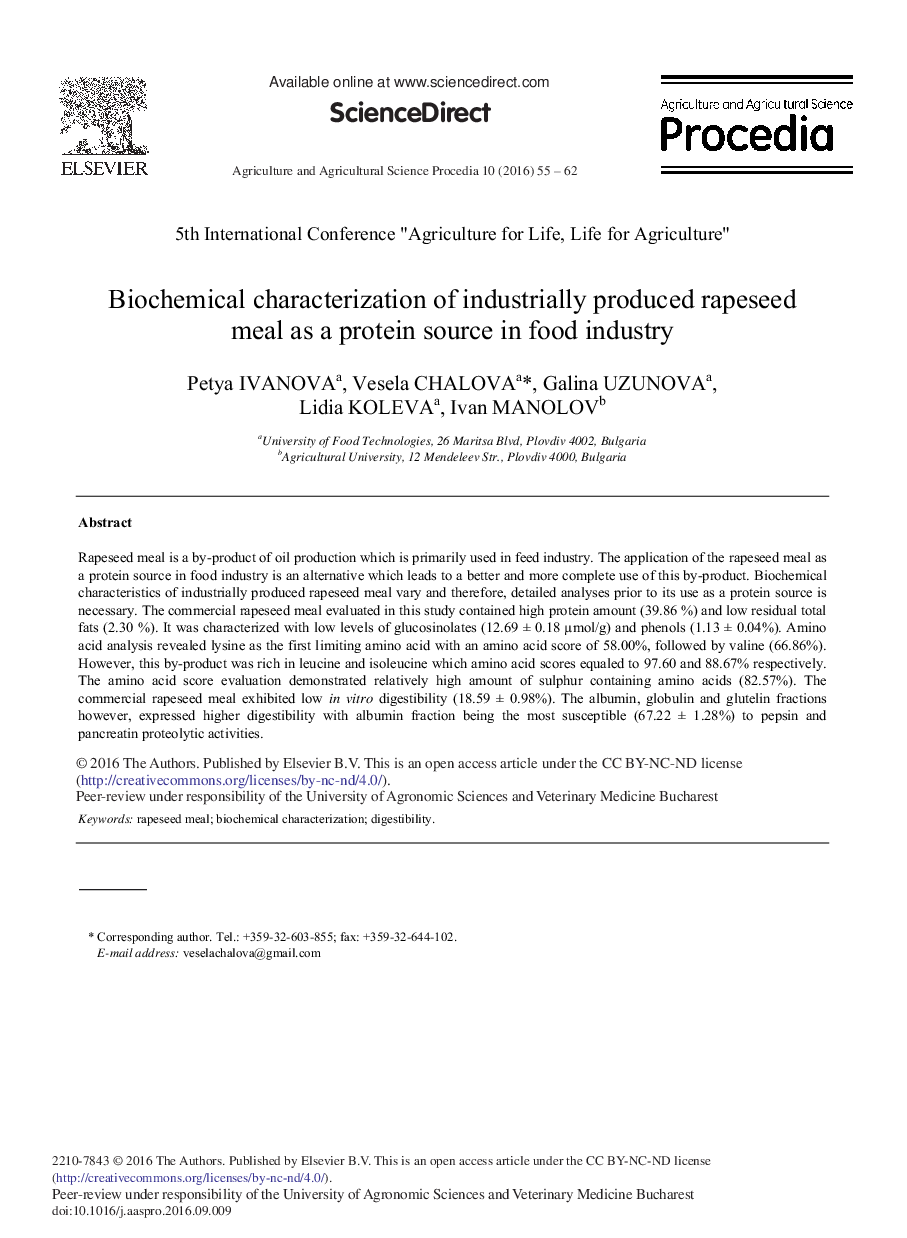| Article ID | Journal | Published Year | Pages | File Type |
|---|---|---|---|---|
| 4492138 | Agriculture and Agricultural Science Procedia | 2016 | 8 Pages |
Rapeseed meal is a by-product of oil production which is primarily used in feed industry. The application of the rapeseed meal as a protein source in food industry is an alternative which leads to a better and more complete use of this by-product. Biochemical characteristics of industrially produced rapeseed meal vary and therefore, detailed analyses prior to its use as a protein source is necessary. The commercial rapeseed meal evaluated in this study contained high protein amount (39.86%) and low residual total fats (2.30%). It was characterized with low levels of glucosinolates (12.69 ± 0.18 μmol/g) and phenols (1.13 ± 0.04%). Amino acid analysis revealed lysine as the first limiting amino acid with an amino acid score of 58.00%, followed by valine (66.86%). However, this by-product was rich in leucine and isoleucine which amino acid scores equaled to 97.60 and 88.67% respectively. The amino acid score evaluation demonstrated relatively high amount of sulphur containing amino acids (82.57%). The commercial rapeseed meal exhibited low in vitro digestibility (18.59 ± 0.98%). The albumin, globulin and glutelin fractions however, expressed higher digestibility with albumin fraction being the most susceptible (67.22 ± 1.28%) to pepsin and pancreatin proteolytic activities.
